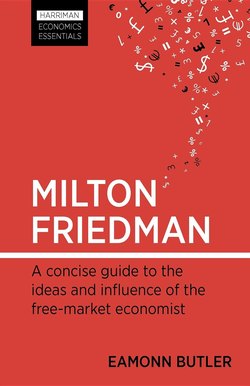Читать книгу Milton Friedman - Eamonn Butler - Страница 18
На сайте Литреса книга снята с продажи.
The Chicago economist
ОглавлениеFriedman’s career at Minnesota was cut short by the offer of a teaching post at the University of Chicago – America’s leading centre for economics teaching and research. Although Friedman’s early teachers had mostly moved on, Chicago still retained a respect for markets that was deeply unfashionable elsewhere. Heavily influenced by Keynes, the overwhelming majority of economists and political scientists advocated a mixed economy with a large degree of government ownership and control – or even a democratic socialism. It seemed unimaginable that the market could achieve better results than deliberate planning and careful regulation. Keynes had demonstrated, to almost everyone’s satisfaction, that the capitalist economy had run out of steam, and needed government investment to kick-start job creation. Even at the best of times, he thought, capitalism was inherently unstable – a point demonstrated by the 1929 crash and the turmoil that followed.
At Chicago, Friedman once again came under the influence of iconoclastic economists, of whom Frank Kinght was probably the most persuasive. Knight understood, and was able to explain, how the market system steered resources to where they were most urgently needed, without the need for government direction, planning or controls. Indeed, one of Knight’s students from the 1940s, James Buchanan – who would also receive the Nobel Prize for economics – wrote that within six weeks of enrolling in Knight’s price theory course, he had been converted from a rabid socialist to a zealous advocate of free markets.
Another thing that Knight preached was that nothing should be sacrosanct in academic argument and debate. Though the orthodoxy of the time might be to believe that capitalism had deep failings and needed strong government intervention to correct them, Knight urged his colleagues and students not to shy away from questioning its assumptions, methods and conclusions.
For his part, Friedman believed that Keynes’s macroeconomic analysis provided quite a useful way of understanding the economy. Its flaw, though, was that it was riddled with false assumptions and factual mistakes. True to his nickname of Mr Macro, he analysed the economy with the tools that Keynes had invented, using the same sweeping concepts such as national income, government spending, and total unemployment, consumption and investment. Indeed, one of the things that made him so effective a critic of Keynes’s followers was that he argued from within the same framework that they accepted and understood. But he deliberately confronted their prejudices with his 1948 article ‘A Monetary and Fiscal Framework’, which impertinently suggested that unfettered capitalism, built on the foundation of private property, produced much greater economic efficiency – and a larger measure of freedom and democracy too – than the socialist or interventionist alternatives. And this was not a question of theory. It was a matter of evidence.
Evidence was at the core of Friedman’s concept of economic science. As he explained in The Methodology of Positive Economics, the choice of what goals we should strive for is a question of values and ethics. But economics must deal with facts, not values. Its subject is whether or not a particular policy helps to achieve our chosen goals. Economics is a science like any other: in science we formulate theories and make predictions about what an action will achieve, and then check the facts to see if we were right. Does the minimum wage, for example, reduce poverty (by giving workers higher wages) or increase it (by creating unemployment)? The evidence provides an answer that people can agree on, regardless of how high they rank poverty among our many social problems.
